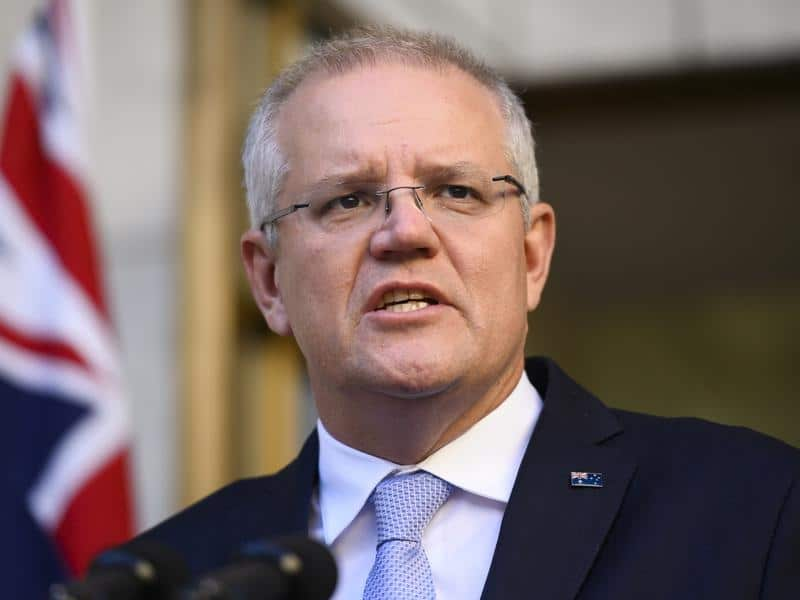Labor MP Peter Khalil has called on Australia to lead an international effort to tackle the refugee crisis and to reassess attitudes towards refugees.
In a speech at the Alfred Deakin Institute for Citizenship and Globalisation on Monday, Mr Khalil, the federal Labor member for Wills in Victoria, called for Australia to ditch its "fortress mentality" and lead a stronger international response to the "waves of mass migration that could well breach the gates".
He urged the Australian government to broker a "fair share agreement" between multiple countries willing to lift their intake of refugees by hundreds of thousands.
The number of extra refugees accepted by each country would be determined by a negotiated formula which could take into account population, GDP per capita, geography, resettlement services available and historical refugee intake.
"The formula would produce each country’s yearly refugee intake and because each country would be doing their fair share, would de-politicise the domestic decision making around refugee policy that plagues Australia and other nations," he said.
Mr Khalil cited UNHCR statistics showing just 92,400 of the world’s 25.9 million refugees were resettled last year.
"The 'queue' is not moving anywhere fast, nor getting any smaller," he said. In 2018, Australia accepted 12,706 refugees, the third-highest amount behind Canada which resettled 28,076, and the United States which took 22,900.
In 2018, Australia accepted 12,706 refugees, the third-highest amount behind Canada which resettled 28,076, and the United States which took 22,900.

Peter Khalil is the federal Labor member for Wills in Victoria. Source: AAP
Some developed nations such as Portugal accepted as few as 35 refugees for permanent resettlement.
That forced developing nations with stretched resources to host the bulk of the world's refugees and displaced people, Mr Khalil said.
His comments come ahead of the first United Nations Global Refugee Forum in Geneva later this month, which will see member states try to coordinate a response to the crisis.
Mr Khalil is a former policy adviser to then-prime minister Kevin Rudd, the former Victorian multicultural commissioner, and a former SBS director. His parents left war-torn Egypt to start a new life in Australia.
As the son of migrants, he told SBS News ahead of his speech he understands the challenges many refugees face when trying to start a new life.
"They were striving to seek a better life in Australia. They were seeking a life of security, and opportunity and prosperity," he said.
"That’s a story that millions of Australians know, whether they are migrants or refugees seeking a better life in this country."
Intake frozen
During the election campaign, Prime Minister Scott Morrison described Australia's humanitarian program as "one of the most generous in the world" as he announced plans to freeze the intake at its current level of up to 18,750 and increase the number of women to 60 per cent of the offshore component.
Last month, the government set a target to move 50 per cent of new refugees in regional areas by 2022 and announced a new position of coordinator-general for migrant services to oversee resettlement services. The changes were in response to recommendations made in a report on the resettlement outcomes of refugees which suggested the new coordinator-general could promote a "strong positive narrative" about Australia's record on refugees.
The changes were in response to recommendations made in a report on the resettlement outcomes of refugees which suggested the new coordinator-general could promote a "strong positive narrative" about Australia's record on refugees.

Prime Minister Scott Morrison has no plans to lift Australia's humanitarian intake beyond its current level. Source: AAP
A government spokesperson said Australia has one of the most "substantial refugee and humanitarian programs in the world".
"On a per capita basis, our program is matched by very few other nations.
"Our refugee and humanitarian program is carefully managed, reflecting policy decisions of the Australian government. The government’s success in restoring secure borders has been fundamental to our successful management of the program."
Mr Khalil said as world events including climate change, natural disasters, war, and conflict worsen the refugee crisis, it is more important than ever to change perceptions of refugees.
"Those on the right see in every refugee a potential terrorist, while those on the left see in every refugee a stricken moral angel."
Mr Khalil said he believes a coordinated global solution will reduce people-smuggling channels and alleviate some of the pressure on the nations taking the largest number of refugees.
"We need to actually look at the global crisis, address that, take our responsibility on the international stage and in fact by doing so."
"By creating an international agreement, a processing agreement and a resettling agreement that increases the refugee intake across multiple countries, it will have the effect of diminishing people-smuggling channels" Mr Khalil denounced Australia's current offshore detention policy, saying the "deterrent effect" of the centres is not the reason that people smuggling operations have reduced.
Mr Khalil denounced Australia's current offshore detention policy, saying the "deterrent effect" of the centres is not the reason that people smuggling operations have reduced.

Refugee advocates march through Melbourne earlier this year. Source: AAP
Instead, he said the primary reason for the reduction in the operations is the fact that governments are targeting the smuggling operations more, by targeting both financial transactions, and by turning back boats when intercepting them.
He said Australia must look to change its policy on migration as the nation is stronger when it embrace refugees and migrants.
"Australia has always been better when we’ve been able to embrace our migration and include refugees, it’s actually made our country stronger and more culturally diverse, that’s the strength of our nation," he said.
Immigration Minister David Coleman's office has been contacted for comment.












